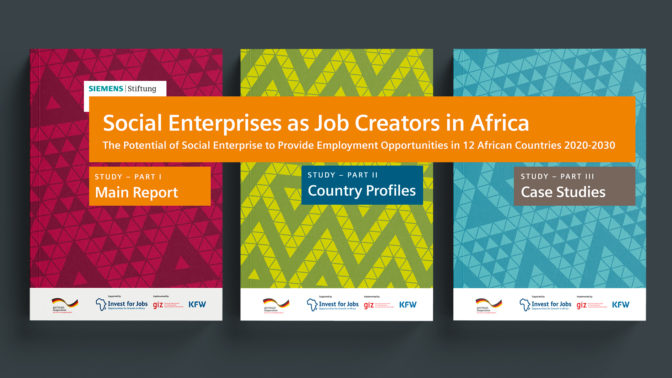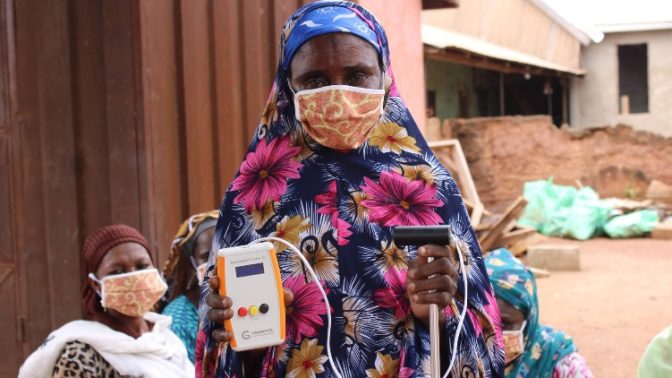Africa needs Decent and Impactful Jobs – Now and for the Future!

Africa’s demographic transition is underway. In 2030, around 1 billion people in Africa will be between 15 and 64 – the so-called working age population. This corresponds to an increase of approximately 40% compared to 2018 (AfDB, 2019). These demographic changes represent a considerable opportunity. Countries in which the largest share of the population is in the working age may reap a so-called “demographic dividend”. With comparably few people depending on the productivity of others (children and elderly), the demographic dividend materializes in an overall increase of disposable income and, ultimately, in accelerated economic growth. However, this opportunity is time-sensitive and dependent on conducive policy-making. Currently, experts estimate that more than half of African countries are unlikely to reach their demographic window of opportunity (UNICEF, 2020).
For many African countries, considerable investments are needed on both sides of the labor market in order to leverage the potential for economic growth and decent and durable job creation. Future job seekers, on the one hand, need support in becoming a strong and attractive future workforce. This includes investments into education, health and future-oriented skills development. Job providers, on the other hand, need to be supported in carrying the costs of providing more and better jobs. But what are better jobs? Certainly, jobs are decent when they provide a reliable source of income, are resilient enough to endure in times of economic decline, and allow for a certain level of protection in the case of diseases, parental leaves or occupational disability.

We are aware of the fact that such jobs are rare – globally speaking and, more specifically, in Africa where large shares of the economy take place in the informal sector. However, we insist that creating more decent jobs is not optional. We not only need decent jobs, we need decent jobs with impact!
The magnitude of societal and environmental problems on this planet urges humanity to rethink economic systems. As the decorated Nobel prize laureate Amartya Sen keeps emphasizing, economic growth doesn’t automatically lead to more well-being in societies, especially when they lack robust democratic institutions. Growing the African economies without any focus on more social and environmental impact would result in unhealthy growth.
It needs a much bigger emphasis on the creation and support of impact-oriented organizations such as social enterprises. Their mission is to work on societal and environmental issues by means of innovative business models. They enter markets that typically remain neglected by mainstream businesses, thereby taking on an important role of preparing future markets and reaching populations who were previously under served.
While evidence on social enterprises’ impact remains fragmented and often anecdotal, the potential of impact-oriented organizations is undeniable. There are many cases in which social enterprises have shown that they can have tremendous impact. In the area of sustainable waste management, social businesses around the world strengthen formerly marginalized workers in the informal sector.

In the agritech sector, there are multiple innovative business models that empower smallholder farmers, which make up for a large share of income generation worldwide. And in the area of financial inclusion, millions of people without a bank account have already benefited from the positive impact that social enterprises have created.
In addition, researchers and development experts increasingly point to the positive impact of social enterprises on labor markets. It is in many cases an explicit objective of social enterprises to provide employment and income opportunities to vulnerable populations, including workers of the informal sector, women, unskilled or older workers, or people with disabilities.
As outlined in the recent study ‘Social Enterprises as Job Creators in Africa’ published by Siemens Stiftung, our projections show that social enterprises can provide at least 1 million jobs in 12 selected African countries by 2030. While this estimation is based on theoretical modelling, concrete case studies further confirm the job creating potential of social enterprises and show which factors need to be considered to leverage it.
The concept of social enterprise remains alien to many players in the development space. Often, they struggle to understand where the definition of social enterprises starts and where it ends. We understand these concerns and acknowledge the importance of clarifying them. Yet, we caution development partners not to avoid the topic for fear of navigating uncharted waters.
Social enterprises can significantly contribute to creating many more decent jobs, which are highly needed in a continent that is mainly populated by a vulnerable population.

What it needs are bold investments in these innovative types of organizations, technical accompaniment to help them build the capacity to become resilient and growing organizations, and support for players that are dedicated to building a positive environment for social enterprises. Single or multi-stakeholder initiatives that are dedicated to long-term and systemic impact in Africa need to be formed to elaborate concrete roadmaps for more and better job creation.
The time for action is now! Let’s join forces and make sure we don’t miss the window of opportunity for economic growth that benefits all.